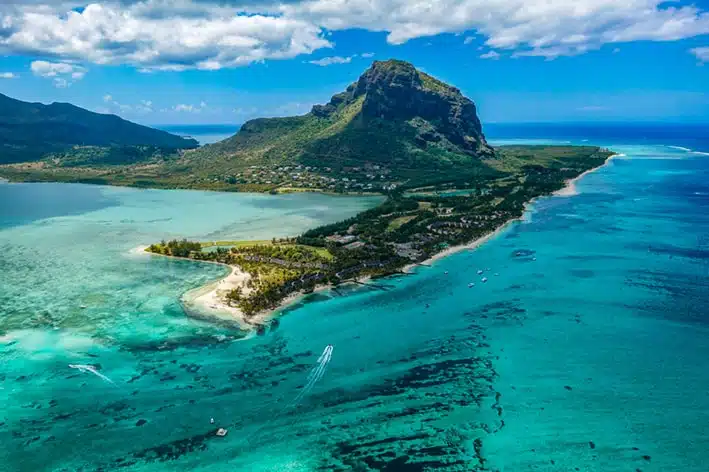In 2021, tourism grew by 4% compared to 2020 and represents almost 10% of global economic activity. It is also one of the main job-creating sectors.
However, this sector can have a negative impact on the environment:
- Over-consumption of natural resources
- Creation of more and more waste that pollutes the environment
- Water and soil pollution that harms biodiversity
- Destruction of eco-systems
- Loss of biodiversity
- Air pollution that contributes to global warming
Global warming is a worldwide phenomenon with devastating impacts on the environment and on local communities through rising sea levels, more frequent and severe storms, land degradation and biodiversity, and rising average temperatures.
The Intergovernmental Panel on Climate Change (IPCC) warned in its 2021 report that the global temperature rise has increased further and will most likely exceed the 1.5°C warming threshold.
In order to limit and stabilise global warming below 2%, the IPCC says that CO2 emissions must be reduced rapidly, with a target of net zero emissions by 2050.
Sustainable tourism: a strategy to take on board
In order to combat global warming, the concept of sustainable development, with its various principles covering environmental, economic and socio-cultural aspects, is also part of the development process of the tourism sector.
In the current context, several alternative approaches have emerged to minimise the negative impact of tourism on the environment and local populations while offering an enriching and different tourism experience to travellers: sustainable tourism, ecotourism, responsible tourism, solidarity tourism, participatory tourism, fair tourism, etc.
All these approaches aim to respect, preserve and enhance the natural, cultural and social resources of a territory in the long term.
The concept of sustainable tourism focuses on environmentally responsible practices to minimise greenhouse gas emissions, preserve natural resources and ecosystems, and encourage local economic activities.
Tourism contributes to global warming through greenhouse gas emissions generated by tourism activities, such as air travel, hotels, restaurants, excursions and other tourist activities.The concept of sustainable tourism therefore aims to minimise these emissions by encouraging eco-friendly behaviour and raising awareness of the importance of protecting the environment and local communities.
The urgency to act: solutions exist
It should be noted that the World Tourism Organisation (UNWTO) states, in its latest report entitled “Baseline report on climate action in tourism” of December 2022, that tourism accounts for 8% of the world’s greenhouse gas emissions and that it is expected to increase by at least 25% by 2030.
Faced with these different challenges, it is therefore urgent to take action to reduce future emissions, to anchor tourism in sustainability, and to mobilise and involve the different stakeholders to enable these different sustainable models to emerge.
The Vanilla Islands concept, which brings together the 6 islands of the Indian Ocean in order to enhance the assets of several islands for a common tourism development, allows holidaymakers to visit several islands during the same trip, which helps to reduce the impact on the environment and preserve the ecosystems.
Reconciling tourism and environmental preservation
In conclusion, sustainable tourism and its various alternatives can help reduce the negative impact of tourism on the environment and contribute to the fight against global warming. Travellers can play an important role by choosing sustainable tourism activities and adopting environmentally responsible practices when travelling.







